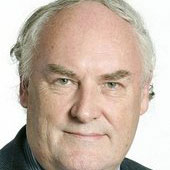Employment and Ecology: The Twin Challenges for Humanity (Part IV)
How will the global community face the twin challenges of employment and protecting the planet’s ecology?
November 28, 2011

Confronting the challenges we face on the road to 2050 will require three things: a new sense of values, a new and updated application of economics and a sense that new institutions will be needed to guide action.
It can be debated as to whether ecological damage (including climate change) or unemployment represents the most important global issue to be addressed if we are to move towards a sustainable world.
Future of Global Governance
The Road to 2050 (Part I)
Real Values and Their Role in Global Governance (Part II)
Global Governance and the Role of Markets (Part III)
Employment and Ecology: The Twin Challenges for Humanity (Part IV)
Unemployment, of course, is more than an economic issue. It lies at the heart of the problem of poverty. It fuels discontent, alienation and a sense of hopelessness, which is often transformed into social unrest.
To some, it remains a fundamental human right, a question not of whether economic growth can produce jobs, but a refitting of economics to assure that everyone has the right to employment.
The employment dilemma lies at the heart of the essential debate about new economics and markets:
- It raises a fundamental philosophical issue of economics. Should economics set as its primary goal the fulfillment of human aspiration by ensuring that every human on this earth of employable age should have a right to a job? Those in favor argue that economics needs to be reengineered to drive such a policy goal.This also means that neoclassical economics — according to which the definition of full employment requires some level of unemployment — remains fundamentally flawed.
- The mispricing of certain forms of capital may well distort labor capital ratios and provide a disincentive for employment-creating economic activities. Furthermore, the externalities associated with unemployment are not factored into relative input prices.A change in policy is urgently required — from taxing employment (as many countries do) to taxing unsustainable or nonrenewable consumption. Placing people at the center of the new economics would increase human capital formation and reduce the discrimination of labor by taxing it.
- Technological substitution may reduce employment opportunities, even where overall economic efficiency is improved. The shift towards service and information-based sectors, as well as increased mechanization in historically labor intensive sectors (such as agriculture), has certainly affected employment opportunity. Finding the appropriate balance between technical and labor substitution remains a challenge that now needs to factor in the full range of economic costs and benefits.
- Green growth has been heralded as a “win-win” strategy by politicians and some economists. The hypothesis is that the new economy based on green growth and renewable energy is a win for the environment as well as a win for jobs.This goal, laudable as it may be, has yet to be tested through serious research. The link between growth, green or otherwise, and jobs is central to long-run sustainability and poverty reduction.
- The large scale global and national demographic shifts anticipated will have profound impacts on the location and demand for labor. This in turn will affect the nature of economic, political and cultural life in many countries.
- The porosity of borders and the mobility of labor suggest that we need to take into account the global nature of employment and the global social costs of unemployment.
An emerging theme in economics is what happens if job security cannot be assured or at least contemplated. How will we function in society where unemployment or partial employment is the expected norm?
The world has become sufficiently technologically developed that it could probably produce all the material goods required with a small fraction of the population. What social and institutional structures could support such outcomes in a manner that provides for sustainable societal benefits? Can we live in a world without jobs — and, if so, with what distributional, poverty and social capital consequences? I do not believe that we can.
To me, ecology — our planet’s natural capital — is the twin global challenge because our natural capital will be both a binding issue as well as a defining issue for our future. The American ecological economist Herman Daly has suggested that while we once lived in an “empty world” with far fewer binding constraints, we are now moving towards a “full” world.
Our natural capital will shape our future — and it will shape where we live, how we live and what we build. Our energy systems will need to be transformed through changing the way in which we consume energy and to an almost complete turnover of our energy capital stock.
Even under conservative estimates of climate change and our desire to be below dangerous levels of emissions build-up (and to manage the transition from oil as we approach peak oil), we will need to be essentially carbon-free by 2050. And who knows, perhaps even nuclear-free.
Our transportation and housing systems will need to be made resilient to the vagaries of changing weather patterns. Investment in agricultural research (especially in the tropics) will need increasing in order for it to be more resilient and more productive. Our global fisheries will need to be restored to a point where we sustainably harvest the fisheries offtake. The management of our global ecology will require a dramatic increase in financial resources, but deployed effectively will provide outstanding societal (and financial) returns.
The twin challenges of addressing employment and ecology are daunting but essential. They are within the realm of possibility by 2050, but it will require a new ethos and a new economics. It will require a new understanding of prosperity, as well as a deeper and more profound understanding that social and economic equity is an investment for self-preservation, peace and security.
It will require new institutions built for purpose with greater transparency, a new ethic and a new mandate: to produce the policies, goods and services that provide for a new humanity.
At the moment, we are living well beyond any reasonable limits of our planet to regenerate and change towards a more fulfilled and happier place. The evidence is clear, and the warning signs are obvious. Unless we recognize that our global economy is bounded by ecosystem limits, we will neither produce sustained growth nor sustained prosperity.
It is clear that if we do find jobs for those in need and if we run down our global ecology, we face a world of low resilience and high social tension. It is not a world most of us would want for our children or grandchildren.
Editor’s Note: This essay is based on remarks Mr. Johnson presented at the Bertelsmann Foundation’s 2011 Salzburg Trilogue.
Read Part III here.
Editor’s note: This essay was adapted from the author’s presentation at the 2011 Salzburg Trilogue. Hosted by the Bertelsmann Stiftung, the Salzburg Trilogue facilitates international cultural dialogue by bringing together recognized public figures to consider matters of global importance.

